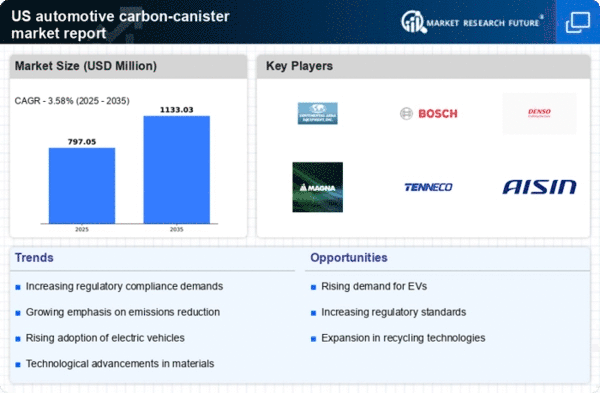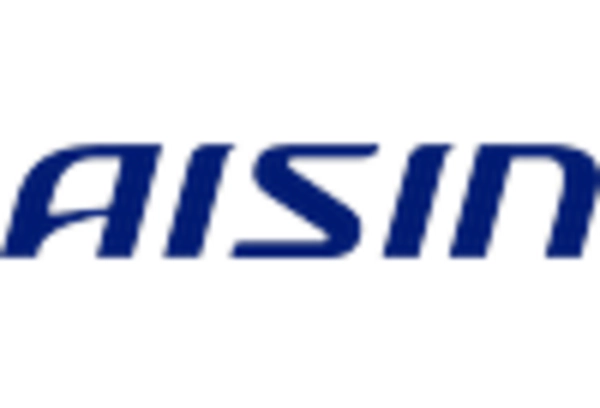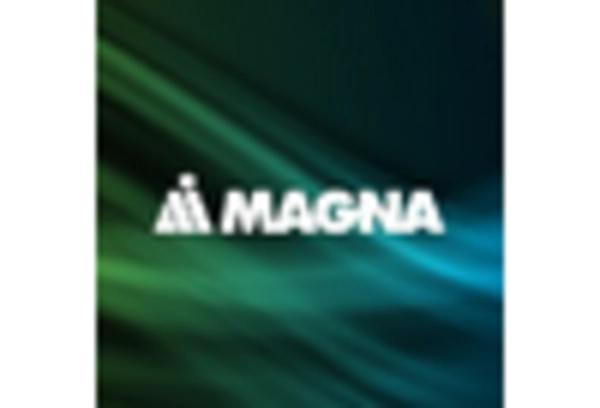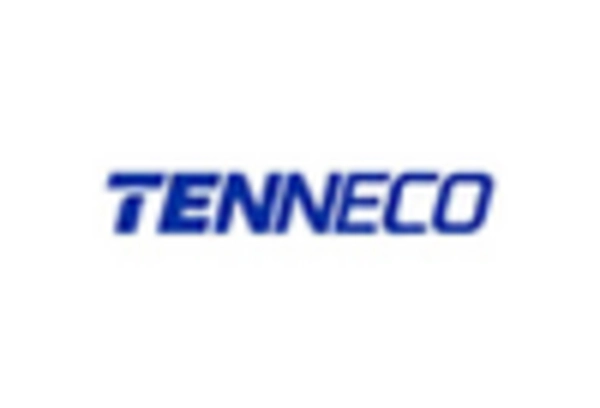Rising Fuel Prices
The automotive carbon-canister market is likely to benefit from the rising fuel prices in the US. As consumers become more conscious of fuel efficiency, there is a growing demand for vehicles that utilize advanced emission control technologies, including carbon canisters. These components play a crucial role in capturing and storing fuel vapors, which can otherwise contribute to fuel wastage. With fuel prices fluctuating, manufacturers are incentivized to enhance vehicle efficiency, thereby increasing the adoption of carbon canisters. This trend is expected to drive market growth, with projections indicating a potential increase in market size by 7% over the next few years as consumers prioritize fuel-efficient vehicles.
Increasing Environmental Regulations
the automotive carbon-canister market is growing due to the increasing environmental regulations imposed by the US government.. Stricter emissions standards are being enforced, compelling manufacturers to adopt advanced technologies that minimize volatile organic compound (VOC) emissions. The Environmental Protection Agency (EPA) has set forth regulations that require vehicles to meet specific emissions criteria, which has led to a heightened demand for carbon canisters. As a result, the market is projected to expand, with an estimated growth rate of 5.5% annually over the next five years. This regulatory landscape not only drives innovation but also encourages manufacturers to invest in research and development, thereby enhancing the overall efficiency of the automotive carbon-canister market.
Consumer Awareness of Environmental Impact
The automotive carbon-canister market is experiencing a shift driven by increasing consumer awareness of environmental impact. As more individuals become informed about the effects of vehicle emissions on air quality and climate change, there is a growing preference for vehicles equipped with effective emission control systems. This heightened awareness is prompting manufacturers to prioritize the development of carbon canisters that meet consumer expectations for sustainability. Consequently, the market is likely to see a surge in demand for vehicles that incorporate these technologies, with estimates suggesting a potential market growth of 8% in the coming years as consumers actively seek out environmentally responsible options.
Government Incentives for Clean Technology
The automotive carbon-canister market is positively impacted by government incentives aimed at promoting clean technology. Various federal and state programs are designed to encourage manufacturers to adopt environmentally friendly practices, including the use of advanced carbon canisters. These incentives may include tax credits, grants, and subsidies for research and development in emission control technologies. As a result, manufacturers are more likely to invest in innovative solutions that enhance the efficiency of carbon canisters. This supportive regulatory environment is expected to foster growth in the automotive carbon-canister market, with projections indicating a potential increase in market size by 9% over the next few years.
Technological Integration in Automotive Design
The automotive carbon-canister market is influenced by the technological integration in automotive design. As vehicles become more sophisticated, manufacturers are incorporating advanced materials and designs that enhance the performance of carbon canisters. Innovations such as lightweight materials and improved adsorption capabilities are being developed to meet the demands of modern vehicles. This trend is indicative of a broader shift towards more efficient and environmentally friendly automotive solutions. The integration of smart technologies, such as sensors that monitor canister performance, is also gaining traction. This evolution in design and technology is expected to propel the automotive carbon-canister market forward, with a projected growth rate of 6% annually.

















